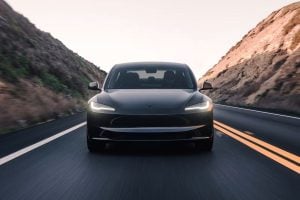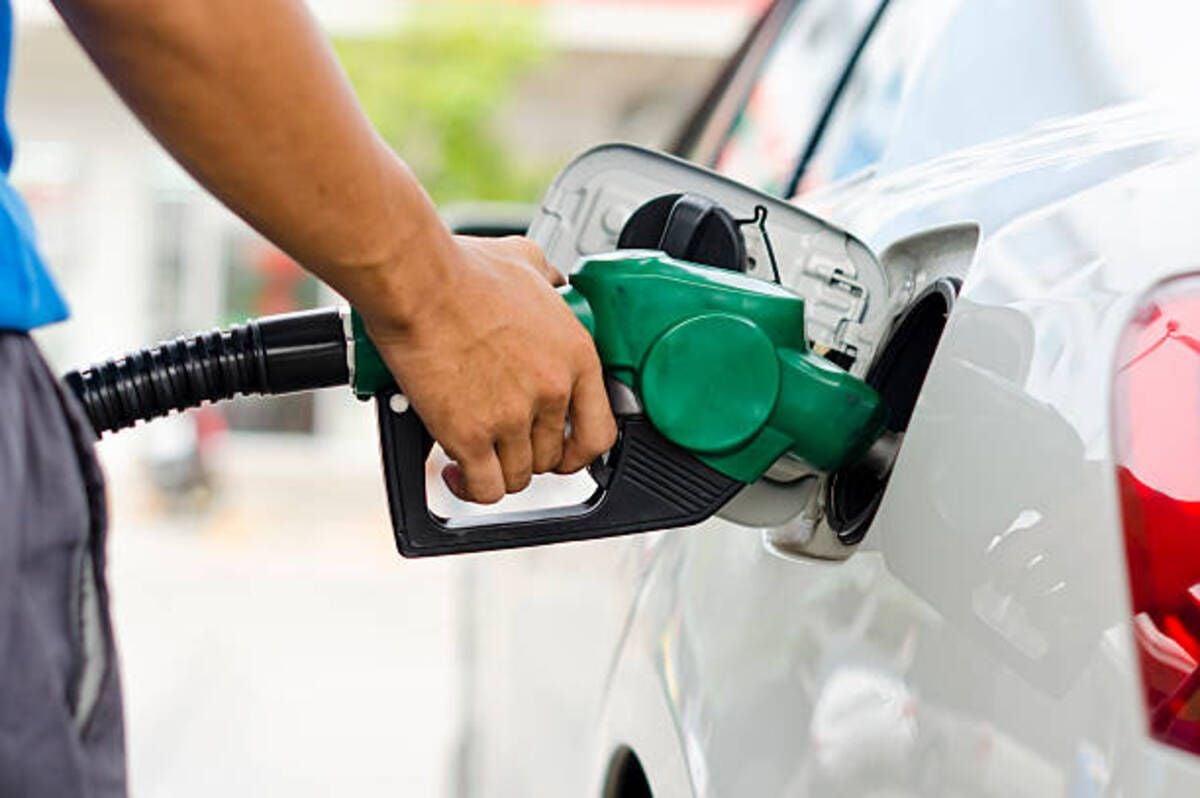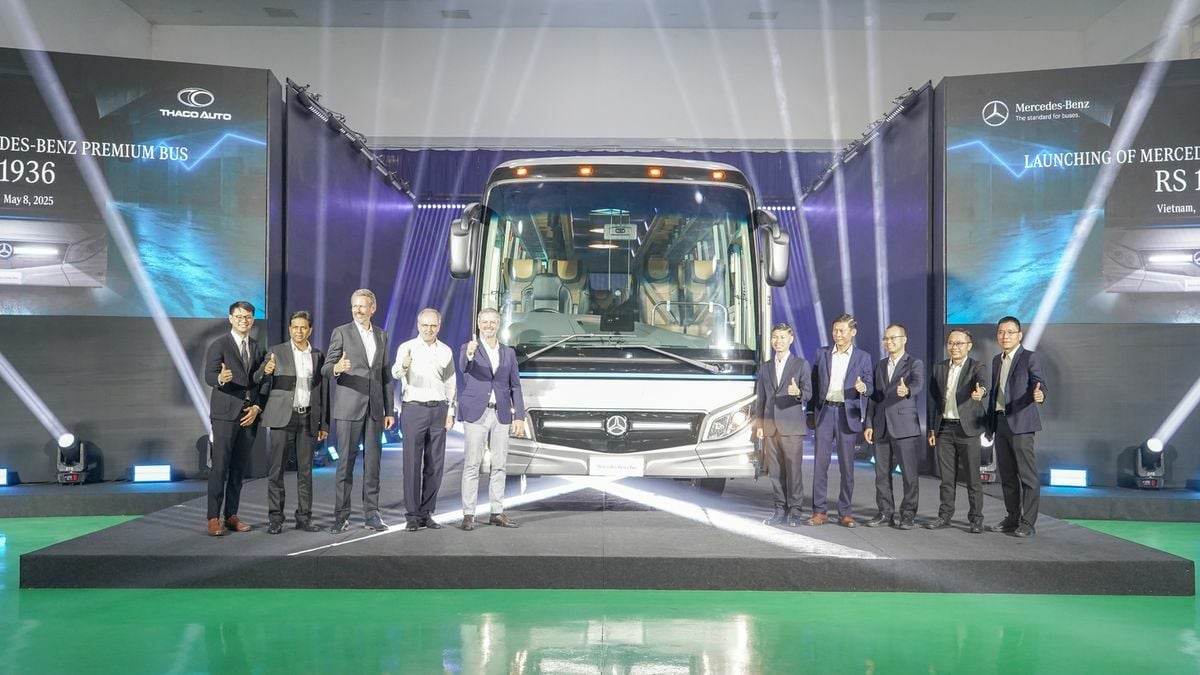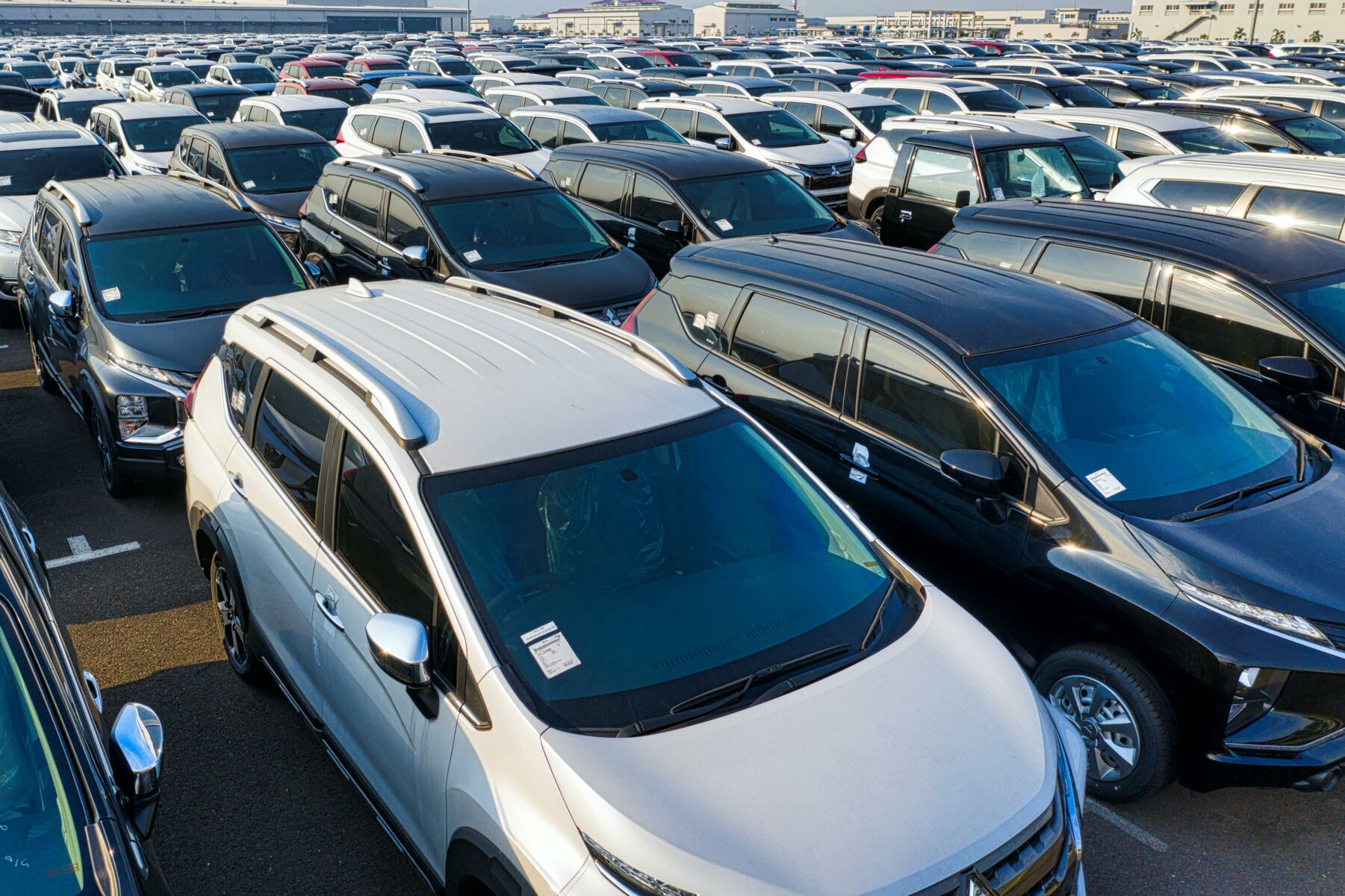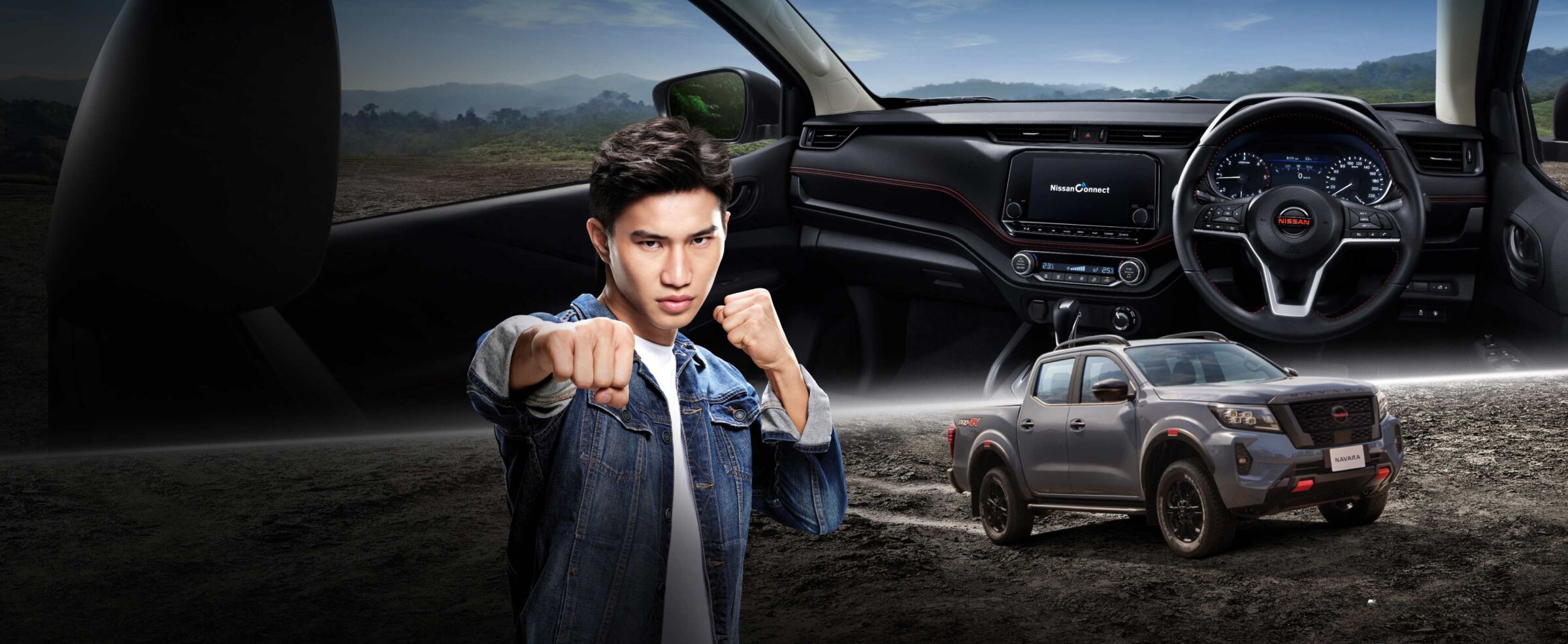Automotive
Lost your license plate in Thailand? Here is what to do next
Your license plate is missing. Maybe the monsoon rains swept it clean off the bracket, maybe it bent beyond recognition in a minor scrape, or maybe you walked back to your parked car and noticed it had simply vanished. Whatever the cause, driving without a...
-

Staying safe on the road during Thailand’s Christmas and New Year holidays
Thailand’s Christmas and New Year holidays are a time of joy, travel, and celebration. However, this busy season also brings a sharp rise in road accidents, with hundreds of lives lost each year. Most crashes involve motorcycles, often linked to speeding, drunk driving, and low visibility, making the roads especially risky for both locals and …
-

Renting a car in Thailand for the Christmas holiday in 2025: What you need to know
As the festive season approaches, many expats and tourists in Thailand are planning their holiday getaways. While flying and public transport are common choices, renting a car offers unmatched freedom, whether you’re heading to the mountains of Chiang Mai, the islands of the south, or exploring off-the-beaten-path destinations. But before you hit the road, here’s …
-

Thailand’s rising stars in global single-seater racing
Thailand has never really been a household name in single-seater racing, not until recently, at least. Formula One’s breakthrough in popularity, thanks to Netflix’s Drive to Survive series, As Formula 1 and single-seater racing categories continue to flourish as of late, Thailand’s growing presence in said international racing series has followed suit. With one driver …
-

How to use Thailand’s toll roads: Easy Pass, M-PASS, M-Flow & More
If you’re driving in Thailand, whether as an expat, long-term visitor, or local, you’ll likely encounter tollways. These roads save time, cut through city congestion, and connect provinces. But using them isn’t always intuitive. Here’s a step-by-step guide to navigating Thailand’s expressways, including when to pay, how to get a pass, and tips to avoid …
-

How to pay your road tax in Thailand and how much it costs?
The Thaiger key takeaways Road tax is mandatory for all vehicles in Thailand and must be renewed yearly. Expats need a blue book, Por Ror Bor, and inspection documents before paying. Costs vary by engine size, and EVs enjoy a five-year road tax exemption. Paying your road tax in Thailand is a crucial part of …
-

Is it cheaper to drive electric vehicles in Thailand?
As electric vehicles (EVs) gain traction across Thailand, the conversation has moved beyond environmental benefits to something far more practical: cost. Drivers are wondering: Is it actually cheaper to drive an electric car in Thailand compared to a petrol car? From upfront purchase prices to the day-to-day running costs, EV ownership is filled with both …
-

A foreigner’s guide to getting a Thai driver’s license in Thailand
Getting a driver’s license in Thailand as a foreigner is a structured process managed by the Department of Land Transport (DLT). There is a complex process of proving your legal status and residency in the country. This guide breaks down the exact requirements and steps you must follow. 1. The first hurdle: Visa and residency …
-

Formula 1 in schools? STEM Racing concludes the 2025 national finals at Grand Richmond Stylish Convention Hotel
The 2025 STEM Racing Thailand National Finals concluded with resounding success at the Grand Richmond Stylish Convention Hotel, marking another milestone in Thailand’s growing leadership in STEM education and motorsport innovation. The opening ceremony of the three-day competition was presided over by Chitrlada Chanyaem, Director of the Bureau of International Cooperation, Office of the Permanent …
-

CHERY enters the Thai EV market with a grand premiere
CHERY, a leading automotive brand under the globally recognised innovation leader Chery Automobile, unveiled the Chery Thailand Grand Premiere Launch, marking the official price announcement of the V23, a 100% electric SUV with a stylish design for urbanites, as well as the debut of the TIGGO8 CSH, a 7-seat premium SUV crafted for modern families. …
-

Phuket’s fuel consumption soars over 1 million litres daily
Phuket’s residents are consuming over a million litres of fuel daily, with expectations for this figure to rise, according to Rattakorn Klinchan, Chief of the Ministry of Energy Phuket Office. Last year, fuel expenditure in Phuket reached 13.7 billion baht, averaging 37.534 million baht daily. This accounts for 37.5% of the nation’s total fuel purchases. …
-

Vroom vroom therapy and Thailand’s ongoing love affair with motorsports
Imagine you’re in an expat bar in Thailand, and on the TV they show a news report for Thailand having the F1 race in Bangkok 2028. After hearing this, you might wonder to yourself or aloud, “Thailand likes racing?!” Oh, little do you know. Let’s get one thing straight: Thailand LOVES racing and motorsports. For …
-

Why trucks and buses in Thailand are moving works of art
Light bouncing off six dozen chrome-coated side-view mirrors. Rows of Michelin Man figurines sit proudly on the cabin roof. Sprawling intricate murals depicting anime characters, cartoon superheroes, and fantastical dreamscapes. If any of these images are familiar to you, then you’ve likely seen the elaborately decorated and modified lorries and buses in Thailand. Perhaps you’ve …
-

How Thailand’s new traffic fines are playing out?
Now that some time has passed since the Royal Thai Police (RTP) formalised their list of new traffic fines and sanctions, in effect since June 1, 2025, it would be an understatement to say that this change has done much to quench the scepticism of the public. The core of the new fines are the …
-

Mercedes-Benz bus shakes hands with THACO for assembly alliance
Reinforcing its commitment to elevate the standards of premium intercity transport in Thailand, Daimler Commercial Vehicles Thailand (DCVT) has officially launched the Mercedes-Benz RS1936, a new-generation fully built-up (FBU) coach that combines cutting-edge engineering, safety, and passenger comfort. This significant milestone also marks the beginning of a strategic collaboration with THACO AUTO, a long-standing partner …
-

Motorbike accidents in Thailand: Why most insurance won’t cover you
Motorbike accidents in Thailand are a major problem, with the country being one of the most dangerous places for riders. Motorbikes are the most common way to get around for both locals and tourists, but they also make up over 70% of traffic deaths. Having insurance is important, but many travellers and expats don’t know …
-

5 stunning motorcycle routes in Thailand to take
Thailand is a paradise for motorcyclists, offering some of the most stunning and diverse routes in Southeast Asia. Whether you’re a seasoned rider or someone looking for a new adventure these are some suggested routes that any rider should take once in their lives. For anyone new to riding a motorcycle cross country, there are …
-

SafetyWing: The only insurance that covers motorbike accidents for digital nomads
Motorbikes are a common way for digital nomads to get around, especially in Southeast Asia. Many travel insurance plans do not cover motorbike accidents, leaving nomads with high medical costs if something goes wrong. SafetyWing Nomad Insurance includes motorbike accident coverage, helping with medical bills, hospital stays, and emergencies. It’s a smart choice for nomads …
-

What travel insurance covers motorbike accidents?
Riding a motorbike while travelling in Thailand is a great way to explore new places, but it also comes with risks. Road conditions can be unpredictable, and traffic laws may be different from what travellers are used to. Accidents happen, and they can lead to injuries, high medical bills, or even worse. Travel insurance helps …
-

How to legally change your licence plates in Thailand
The Department of Land Transport (DLT) manages the straightforward process of changing licence plates in Thailand. Whether you need to update your plates due to relocation, replace lost or damaged ones, or switch to a lucky number, it’s important to follow the legal steps. This guide explains everything you need to know about the process, …
-

Is it worth it to get nitrogen-filled tyres in Thailand?
Many drivers in Thailand are considering nitrogen-filled tyres for better performance and safety. With promises of improved fuel efficiency, longer-lasting pressure, and smoother handling, they offer benefits that appeal to many. However, factors like cost and maintenance frequency make it worth considering whether this option truly fits your driving needs. This guide explores the differences …
-

Dealerships pivots to showroom leasing amid EV market surge
A major car dealership and previously an official Mitsubishi car dealer located in Rangsit, has decided to pivot its business strategy, opting to lease its showroom space due to the rising trend of electric vehicles (EVs) in Thailand. This decision comes as the company faces rapid changes in the automotive market and a decline in …
-

9 surprising reasons your car insurance claim might be denied
Car insurance is important for drivers in Thailand. However, even most insurance packages including comprehensive Type 1 insurance have exclusions that could lead to claim denials. Understanding why car insurance claims are denied can help you avoid surprises and protect yourself better. This article explains the common reasons claims are rejected and how to handle …
-

Thailand’s automotive production lowest since pandemic
Thailand’s automotive sector faces a significant downturn in 2024, with the Federation of Thai Industries (FTI) projecting annual vehicle production to hit 1.5 million units, marking the lowest output since 2021’s pandemic-affected figures. Speaking at a briefing today, November 25, FTI automotive industry group spokesperson Surapong Paisitpatnapong announced this second downward revision of the year. …
-

The best small cars to use in Thailand
These days when in big cities like Bangkok, it seems that everyone is getting cars that are massive and make driving inside a soi a herculean task. However, on the opposite spectrum of that trend, it seems like small cars can be a good choice of transportation in Thailand, especially in said busy cities. Their …
-

Revving down: Nissan shifts gears with Thai job cuts
Nissan Motor Corporation is gearing up for a major reshuffle in Thailand, as the automotive giant plans to slash or relocate around 1,000 jobs amidst its sweeping global workforce reduction strategy. This hard-hitting news comes from insider sources who leaked the story to Reuters, albeit under the cloak of anonymity due to their lack of …
-

Does the hot weather in Thailand affect cars?
Thailand’s hot weather can be a real test for your car. With temperatures often climbing above 40°C, the intense heat doesn’t just make you sweat; it puts your vehicle under considerable stress. This extreme weather can lead to overheating engines and tyre blowouts, making driving a potential hazard. As the heat rises, your car’s performance …
-

Types of illegal vehicles and how to report them in Thailand
Illegal vehicles extend beyond those lacking proper approvals. They also encompass vehicles modified to bypass emission control systems, such as diesel particulate filters and catalytic converters, adversely affecting air quality and public health. Reporting these vehicles is crucial in addressing this issue. Despite facing procedural challenges and suspensions, the ability to identify and report illegal …
-

How to do the online training and renew your driver’s licence in Thailand
If you’re living in Thailand, renewing your driver’s licence might feel like a bit of a mystery. In the past, it often required a trip to the Department of Land Transport (DLT) and involved long waits. Luckily, Thailand now offers an online option that lets you complete the required training and, in many cases, even …
-

Things to expect when buying a car for older drivers
Recognising the changing needs of older drivers is essential. As we age, we often experience shifts in strength, mobility, flexibility, vision, and reaction times and these changes may reduce confidence behind the wheel. When buying cars, it’s important to consider how these factors impact comfort and control for older drivers. Safety should be the top …
-

Why are cars so expensive in Thailand?
Cars in Thailand come with hefty price tags, leaving many people wondering why they’re so expensive. The rising cost of both new and used cars in Thailand can be confusing, but by looking into the factors behind these prices, we can uncover a complex combination of taxes, import duties, and market forces that contribute to …





